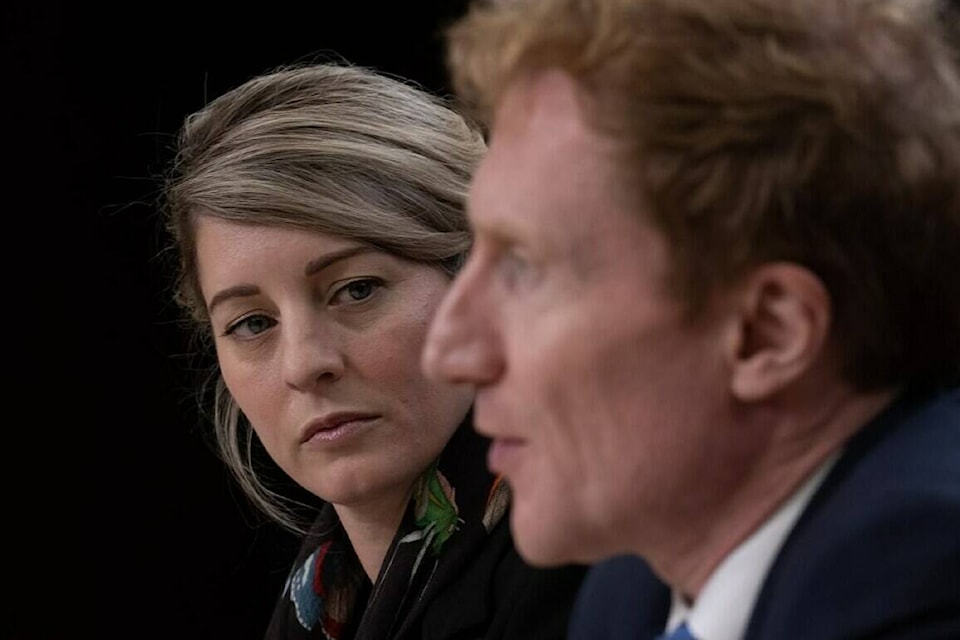Ottawa – Marc Miller, Minister of Immigration, Refugees and Citizenship, Mélanie Joly, Minister of Foreign Affairs, and Ahmed Hussen, Minister of International Development, issued the following statement today:
“Today, on World Refugee Day, the global community honours and shows solidarity with millions of refugees, while committing to our ongoing work together to respond to their humanitarian needs and find solutions to their difficult situations. Across the globe, more than 117 million people were forcibly displaced from their homes due to persecution, conflict, violence, human rights violations and natural disasters. The global refugee population increased by 7% to reach 43.4 million in 2023. Compared to a decade ago, the total number of refugees globally has more than tripled. It is one of the biggest global challenges we face today. Refugees need our solidarity now more than ever, and that is why Canada was one of the top refugee resettlement countries last year.
“Canada’s resettlement commitments focus our efforts on bringing refugees identified by the United Nations Refugee Agency (UNHCR) and other referral partners safely to Canada as government-assisted refugees. We plan to renew our commitments to Africa and the Middle East and make a new one for Asia Pacific, by welcoming 12,000 refugees from each region over the next three years. We will also continue to resettle refugees from the Americas, human rights defenders, and other vulnerable people.
“Over this year, our country will also welcome over 27,000 refugees sponsored by private groups. Through this program, we work with sponsors to resettle vulnerable and at-risk people. For example, through our successful partnership with Rainbow Refugee Society, we have seen hundreds of privately sponsored LGBTQI+ refugees and their families resettle to Canada since 2012. This partnership has also inspired others, including a partnership with Rainbow Railroad, which is building on its trust and expertise with LGBTQI+ communities around the world to help more LGBTQI+ people and their families find safety in Canada.
“We also express sincere appreciation for the generosity of host countries who have supported refugees, for periods of up to decades, while maintaining open-door policies for new refugee populations despite socio-economic and natural disasters of their own.
“Last year, Canada provided $96 million in international assistance funding to the UNHCR. This funding mainly addresses the emergency needs of vulnerable populations, including access to health care, education and livelihood opportunities. Canada also provided funding for Afghan refugees and host communities in Pakistan following the devastating 2022 floods.
“Canada is also helping countries access the resources they need to support refugees. That is why we are investing $75 million over six years for capacity-building projects across Latin America and the Caribbean that will help countries in the region better respond to forced displacement movements and large-scale irregular migration. New projects include helping Ecuador improve access to protection and asylum processing for forcibly displaced people, strengthening Peru’s asylum system, and expanding the protection and integration of migrants into local communities and labour forces in Brazil.
“In addition, Canada just announced funding of $450,000 over three years to support Phase II of the Refugee Education Council, an advisory body comprised of youth from Africa, Asia, the Middle East and South America who have been affected by displacement and are working to increase access to quality education in their communities. The advisory body will provide strategic advice on education for refugee, displaced and community children and youth.
“Canada recognizes the ongoing challenges refugees face and their need for sanctuary and protection, as well as the incredible contributions they make to shaping their communities. We thank the people and organizations that welcome refugees and help them settle into their new lives. We will continue to be a leading example in refugee resettlement by working with our partners, in Canada and around the world, to offer protection and provide opportunities to those most vulnerable.”








